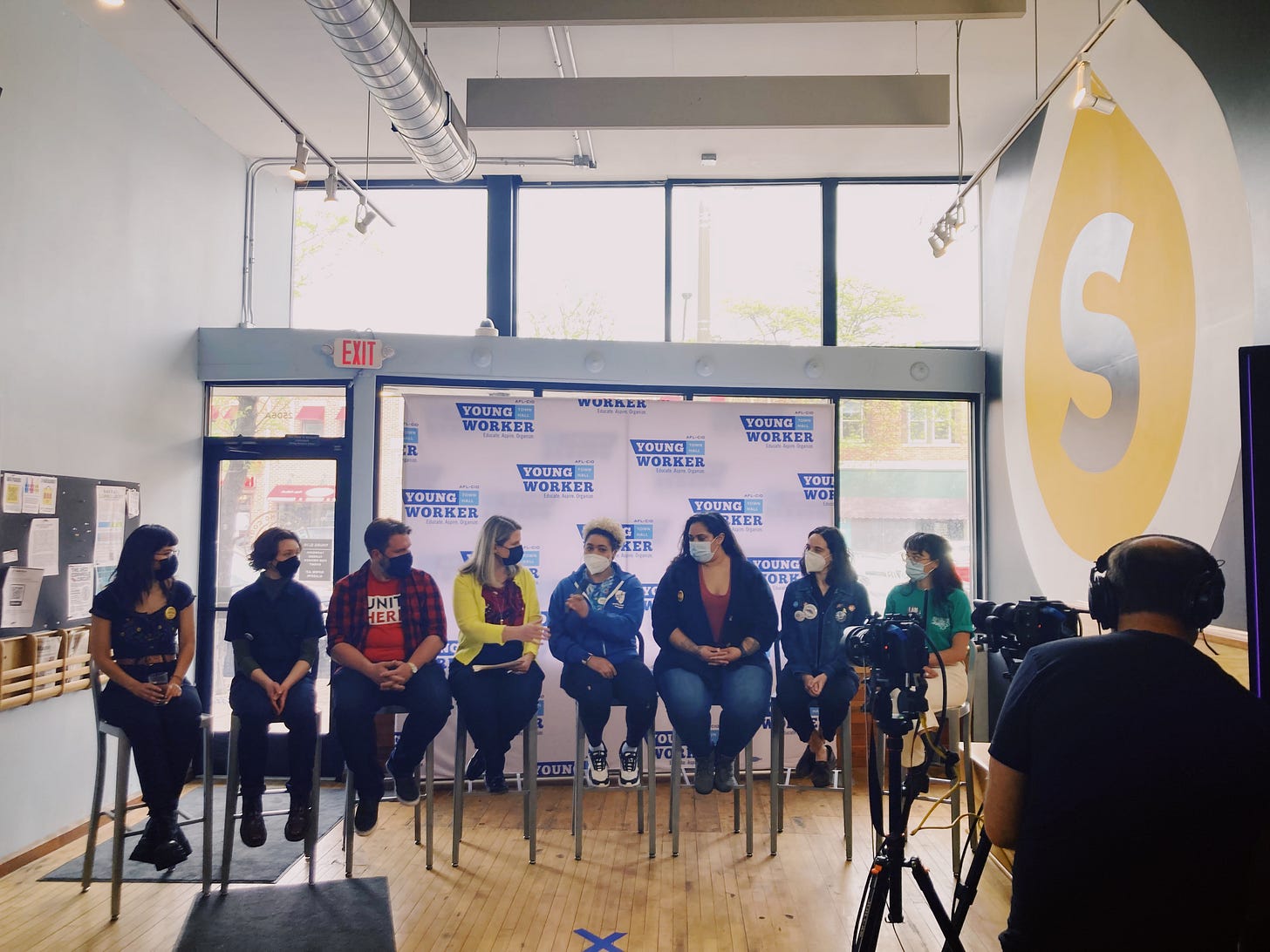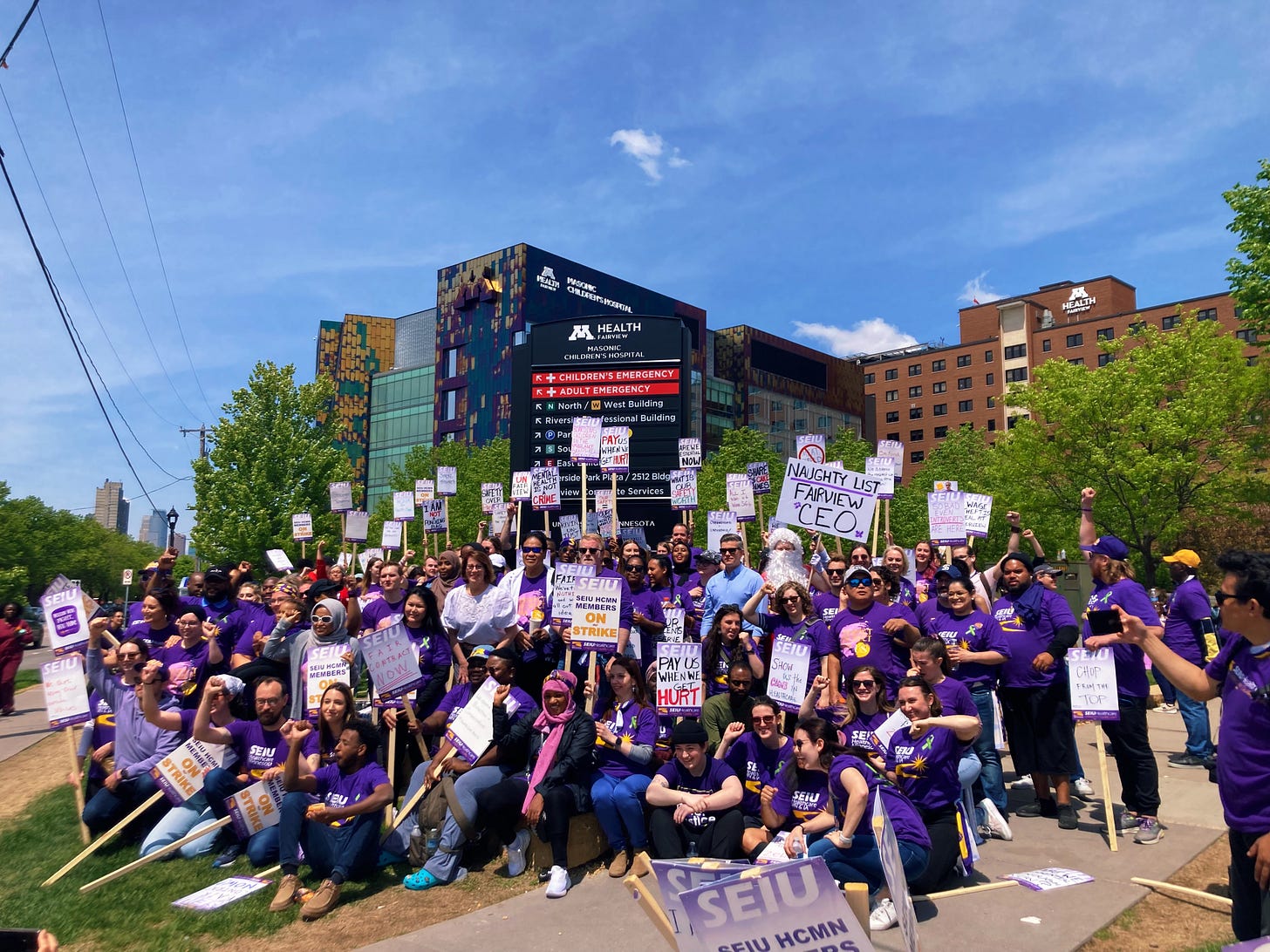Working people know what grief is
And we see the connections that lead to the violence and grief we live with every day.
Howdy, folks! A few news items for you before I invite you to check-in with your feelings...
🚨 Frontline worker pay update
The Department of Labor and Industry has an update on frontline worker payments: applications will likely be open June 8 through July 22! That could change but we’ll keep giving updates.
Two informational webinars have been scheduled to help workers with the application process, one on Tuesday, May 31, from 1-2pm and one Friday, June 3, from 3:30-4:30pm. More info here.
🧨 Young workers don’t need help
The AFL-CIO hosted a Young Workers forum last night at Fair State Brewing Cooperative. We were invited to the forum, and it’s obvious to us that these folks know what they’re doing. We hope to see more events like these! Stay tuned for a story.

🪧 Workers on the frontlines of the behavioral health crisis strike during mental health awareness month
Michael Moore from St. Paul Union Advocate (@unionadvocate) has the story.
Senior mental health coordinator Stephanie Stark wrote in an op-ed for the Minnesota Reformer that employer inaction is one of the main reasons they went on strike:
When I first started at my current job there were dozens of staff who had worked there five, 10, sometimes 20+ years. Now that number has dwindled to just a small handful of veteran staff, with the large majority of our employees having worked there for less than one year. Management is struggling to fill positions and struggling even harder to retain the employees they already have.
The COVID-19 pandemic has certainly made health care work challenging in ways none of us had experienced before. But it is the continued actions of health care administration causing so many of us to leave the field of mental health.
💔 Some thoughts on grief
We’re thinking of the victims and survivors of the recent brutal massacres that took place in the white supremacist attack on the grocery store in Buffalo, New York, and the attack on the elementary school in Uvalde, Texas. The community members, children, and teachers whose lives were stolen were not disposable.
It’s always difficult to come up with words to express our feelings. But as news writers, we’re tasked with finding the language to help explain events and give context. In my own journey with politics, grief, and death studies, I’ve come across a few frameworks that are helping me to understand the systems and emotions we live in.
Why does the government allow some people to die? Unpacking the necropolitics framework, or the slow violence that historically marginalized people are condemned to live under, by Namrata Verghese (@NamrataVerghese) for Teen Vogue.
And for us who did not die, what do we do? On the writings of June Jordan and grief literacy, by Mona Eltahawy (@monaeltahawy).
I feel a lot of contradicting emotions in my daily life, especially while reading the news. I feel soul-crushing rage at the leaders and employers who treat our bodies as expendable. I feel frustration when we praise the resilience of people forced to survive on their own as the 1% hoards resources and power. I feel scared and excited watching workers withhold their essential labor to create change. I feel hope listening to the voices of young workers whose spirits are energizing us through a paradigm shift on the way to building a culture of care and dignity for all.
What are you feeling?
We are not disposable. We are each other’s harvest.



